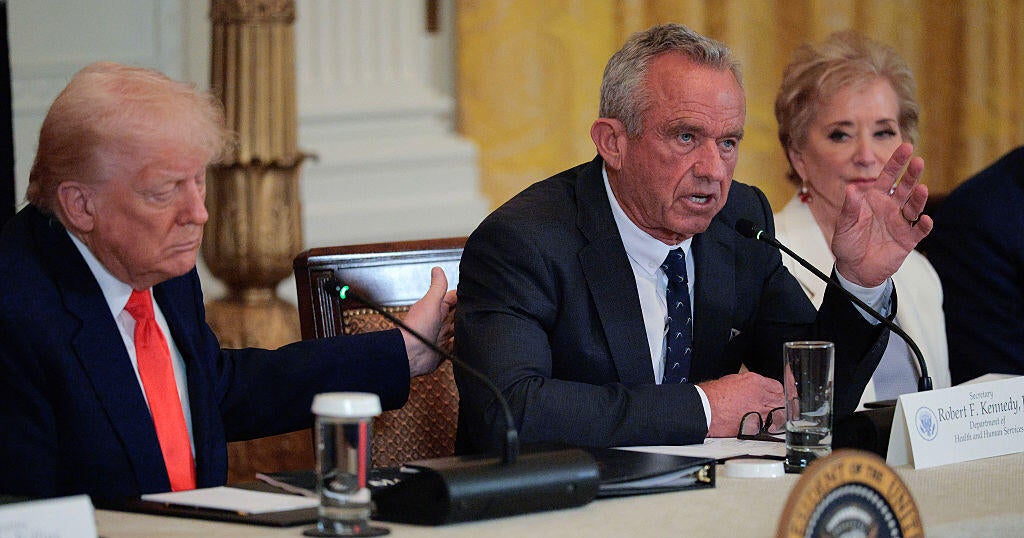The recent report by Health and Human Services Secretary Robert F. Kennedy Jr., titled “Make America Healthy Again” (MAHA), has garnered attention for citing over 500 studies concerning chronic diseases in children. However, a digital news outlet known as NOTUS has identified inconsistencies, including multiple citations of studies that cannot be verified. With rising concerns about childhood health issues, the report’s accuracy and credibility have entered the spotlight, prompting responses from White House officials.
| Article Subheadings |
|---|
| 1) Overview of the MAHA Report |
| 2) Issues with Report Citations |
| 3) Official Responses and Reactions |
| 4) Implications for Public Health Policy |
| 5) Future Directions and Funding Requests |
Overview of the MAHA Report
The “Make America Healthy Again” report, spearheaded by HHS Secretary Robert F. Kennedy Jr., seeks to address alarming trends in chronic diseases affecting children. In its lengthy analysis, the report highlights health issues such as childhood obesity, diabetes, autism spectrum disorders, Attention Deficit Hyperactivity Disorder (ADHD), certain cancers, and autoimmune disorders. It suggests that contributing factors include poor diet, particularly the consumption of ultra-processed foods, sedentary lifestyles, chronic stress, and an overreliance on medications and vaccinations. The comprehensive nature of this report was intended to establish a significant foundation for public health initiatives aimed at curbing these trends.
Issues with Report Citations
Despite the ambition of the MAHA report, scrutiny arose surrounding its citations. The investigative efforts of NOTUS revealed that seven of the studies referenced could not be verified as published. Specifically, an author linked to one purported study clarified that while she had conducted research on anxiety in children, she did not contribute to the report cited in the MAHA document. Additionally, some studies reportedly misrepresented findings about children’s screen time, medication usage, and anxiety that could contribute to a misleading narrative about childhood health. These issues raised significant alarm among public health officials and experts, some of whom suggest that cherry-picking data undermines the document’s credibility.
Official Responses and Reactions
In the wake of the revelations about inaccurate citations, Karoline Leavitt, the White House press secretary, responded to questions during a briefing. She acknowledged the existence of formatting and citation issues, assuring reporters that the MAHA report would be updated. “But it does not negate the substance of the report,” she emphasized, positing it as a groundbreaking health analysis. Conversely, some medical experts, including Dr. Céline Gounder, criticized the official narrative, asserting that the problems with the report extend beyond mere formatting errors to more serious ethical concerns. According to her, the fingerprints of artificial intelligence (AI) are evident in the document, suggesting potential misuse of technology in producing government reports.
Implications for Public Health Policy
The controversies surrounding the MAHA report not only call into question its scientific integrity but also the subsequent policy implications it aims to influence. The report is framed as a vital tool for guiding policy recommendations focused on addressing chronic disease in children. However, the need for accuracy and reliability in government health reports is paramount to ensure that responsive measures are built on a solid foundation. Current and former federal health officials have already indicated lingering concerns about misinformation and the possibility that undisclosed drivers of chronic diseases may be overlooked. Heightened scrutiny of vaccine schedules and medication usage mentioned in the report may also influence public perception and future health initiatives adversely.
Future Directions and Funding Requests
As the White House prepares to update the MAHA report to rectify the identified errors, they are also positioning it as a critical element in their broader health strategy. The federal government has requested an additional $500 million in funding from Congress explicitly for the MAHA initiative. This funding situation raises the stakes for the report and its credibility: a flawed report could jeopardize necessary financial support for future public health initiatives. Moreover, how the updated report will impact ongoing conversations about public health policies, vaccination strategies, and children’s overall well-being remains to be seen as stakeholders await the revised document.
| No. | Key Points |
|---|---|
| 1 | The MAHA report cites over 500 studies on children’s chronic health issues. |
| 2 | Notable inaccuracies in citation have been documented, leading to questions about credibility. |
| 3 | The White House plans to update the report in light of identified errors. |
| 4 | Medical experts have expressed concerns regarding ethical standards in the report’s creation. |
| 5 | Funding requests related to the MAHA initiative raise important questions about future public health strategies. |
Summary
The unfolding controversy surrounding the MAHA report highlights the critical importance of accuracy and integrity in public health communications. With questions raised over the authenticity of many cited studies, officials now face the challenge of ensuring that future policy decisions are informed by reliable data. Given the influence of such reports on public health funding and strategies, maintaining high standards of accountability is essential for improving health outcomes for children.
Frequently Asked Questions
Question: What is the “Make America Healthy Again” report intended to do?
The MAHA report aims to address rising chronic health issues among children by analyzing contributing factors and proposing public health recommendations.
Question: What issues were identified in the MAHA report’s citations?
Investigations revealed that seven of the referenced studies could not be verified as published, raising concerns about the report’s accuracy and credibility.
Question: How is the White House responding to the controversies surrounding the report?
The White House has acknowledged the formatting issues and plans to update the report while maintaining confidence in its overall substance and intent.
